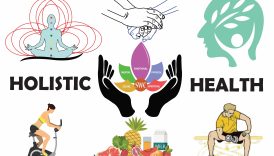Wellness Warriors: Strategies for Sustaining a Healthy Life

Importance of Wellness
In today’s fast-paced world, wellness often takes a backseat to daily obligations and stressors. Prioritizing wellness is essential not just for physical health, but for emotional and mental well-being as well.
- Wellness Warriors: Strategies for Sustaining a Healthy Life
- Importance of Wellness
- Role of Wellness Warriors
- Mindful Eating Habits
- Benefits of Mindful Eating
- Tips for Practicing Mindful Eating
- Regular Physical Activity
- Impact of Exercise on Health
- Ways to Incorporate Exercise into Daily Routine
- Prioritizing Sleep
- Effects of Quality Sleep
- Creating a Bedtime Routine
- Stress Management Techniques
- Understanding Stress
- Coping Strategies for Stress
- Connecting with Nature
- Benefits of Nature on Well-being
- Outdoor Activities for Wellness
- Building a Support System
- Importance of Social Connections
- Ways to Cultivate Supportive Relationships
- Mindfulness and Meditation
- Benefits of Mindfulness
- Practicing Meditation for Mental Health
- Self-Care Practices
- Importance of Self-Care
- Self-Care Ideas for a Healthy Lifestyle
- Balancing Work and Life
- Work-Life Integration
- Time Management Strategies
- Healthy Relationships
- Characteristics of Healthy Relationships
- Communication Skills for Stronger Bonds
- XII. Gratitude and Positive Thinking
- Effects of Gratitude on Well-being
- Practicing Positive Affirmations
- XIII. Setting Wellness Goals
- SMART Goal Setting
- Tracking Progress and Adjusting Goals
- XIV. Healthy Eating Choices
- Nutrient-Dense Foods
- Meal Planning for Health
- XV. Consistency and Persistence
- Staying Committed to Wellness
- Overcoming Challenges in a Healthy Lifestyle
- Balanced Life: A commitment to wellness leads to a balanced life, fostering better relationships, higher productivity, and increased energy levels.
- Preventive Health: Investing in wellness can prevent chronic illnesses, lowering healthcare costs in the long run.
Role of Wellness Warriors
Among us are wellness warriors—individuals committed to promoting a healthier lifestyle within their communities. These warriors serve as:
- Role Models: They inspire others through their actions, showcasing the benefits of a healthy lifestyle.
- Support Systems: They create supportive networks to motivate each other on this journey towards holistic wellness.
By actively engaging in wellness practices, they not only enhance their own lives but also uplift those around them.
Mindful Eating Habits
Benefits of Mindful Eating
Transitioning from wellness warriors dedicated to improving well-being, one impactful practice is mindful eating. This approach transforms the way individuals relate to food and offers remarkable benefits:
- Better Digestion: Eating slowly allows the body to properly digest food, reducing discomfort.
- Weight Management: Increased awareness helps recognize hunger cues, preventing overeating.
- Enhanced Enjoyment: Mindful eating turns meals into a pleasurable experience, allowing individuals to savor each bite.
Tips for Practicing Mindful Eating
Integrating mindful eating into daily life can be simple yet profound. Here are some practical tips:
- Eliminate Distractions: Turn off screens and focus on the meal.
- Engage Your Senses: Notice the colors, textures, and smells of the food.
- Pause Between Bites: Put down utensils to slow down and appreciate flavors.
By incorporating these tips, individuals can embrace a more intentional approach to eating, fostering not only physical health but also a deeper connection with their meals.
Regular Physical Activity
Impact of Exercise on Health
Building on the principles of mindful eating, incorporating regular physical activity is equally essential for overall wellness. Exercise can transform not only the body but also the mind. It offers a myriad of health benefits, including:
- Enhanced Mood: Physical activity releases endorphins, improving mood and reducing feelings of anxiety.
- Improved Cardiovascular Health: Regular exercise strengthens the heart, enhances circulation, and lowers blood pressure.
- Increased Longevity: Engaging in consistent physical activity is linked to a longer, healthier life.
Ways to Incorporate Exercise into Daily Routine
Integrating exercise into a daily routine doesn’t have to be daunting. Here are some enjoyable ways to get moving:
- Take Short Walks: Break up long periods of sitting with short walks during breaks.
- Use the Stairs: Opting for stairs over elevators can significantly boost daily activity levels.
- Dance or Exercise at Home: Turn on your favorite music and dance around the house or follow an online workout.
By weaving these habits into everyday life, individuals can embrace physical activity, enhancing their overall well-being and vitality seamlessly.
Prioritizing Sleep
Effects of Quality Sleep
Continuing from the discussion on physical activity, another cornerstone of overall wellness is prioritizing quality sleep. Sleep is not just a passive activity; it plays a crucial role in physical health, emotional well-being, and cognitive function. Quality sleep offers numerous benefits:
- Boosted Immunity: Restful nights enhance the body’s ability to fight off illness.
- Improved Memory: During sleep, the brain processes and consolidates memories, which is vital for learning.
- Emotional Stability: Adequate sleep helps regulate mood, reducing stress and anxiety levels.
Creating a Bedtime Routine
To reap the benefits of good sleep, establishing a consistent bedtime routine is essential. Here are some effective tips:
- Set a Regular Sleep Schedule: Go to bed and wake up at the same time every day, even on weekends.
- Limit Screen Time: Reduce exposure to screens at least an hour before bed to promote melatonin production.
- Create a Relaxing Environment: Make your bedroom conducive to sleep by keeping it cool and dark, and using calming scents like lavender.
By implementing these strategies, individuals can not only enhance their sleep quality but also take a significant step towards achieving overall wellness.
Stress Management Techniques
Understanding Stress
As we journey towards overall wellness, it’s vital to acknowledge the impact of stress. Stress is a natural response to challenges and demands in life, but chronic stress can lead to severe health issues. Understanding these factors is key:
- Types of Stress: Acute stress is short-term and often related to a specific event, while chronic stress persists over a long time.
- Physical Responses: Stress can manifest physically, leading to headaches, fatigue, and digestive problems.
Coping Strategies for Stress
To effectively manage stress, it’s essential to have coping strategies in place. Here are some actionable techniques:
- Practice Deep Breathing: Taking slow, deep breaths can lower heart rate and promote relaxation.
- Engage in Mindful Activities: Activities like yoga or tai chi can help ground you and reduce stress levels.
- Connect with Others: Talking to friends or family can provide support and alleviate feelings of isolation.
Implementing these techniques can empower individuals to manage stress proactively and maintain a sense of balance in their lives.
Connecting with Nature
Benefits of Nature on Well-being
Moving forward in our wellness journey, connecting with nature is a powerful yet often overlooked aspect of self-care. Spending time outdoors can significantly enhance emotional and mental well-being. Here are some compelling benefits:
- Stress Reduction: Nature has a calming effect, lowering cortisol levels and helping to alleviate anxiety.
- Improved Mood: Natural environments foster feelings of happiness and contentment, often leading to increased creativity.
- Enhanced Focus: A walk in the park can help clear the mind and improve concentration, particularly after working for long hours.
Outdoor Activities for Wellness
To reap these benefits, consider incorporating outdoor activities into your routine. Here are some enjoyable ways to connect with nature:
- Hiking: Explore local trails and immerse yourself in the beauty of your surroundings.
- Gardening: Cultivating plants not only beautifies your space but also boosts mood and lowers stress.
- Nature Walks: A simple stroll in your neighborhood can be refreshing and energizing.
By embracing nature, individuals can enrich their lives, promote mental clarity, and foster a deeper sense of well-being.
Building a Support System
Importance of Social Connections
As we explore the significance of connecting with nature, we must also recognize how vital social connections are to our well-being. Building a strong support system not only provides companionship but also enhances resilience in tough times. Research shows that robust social networks can lead to:
- Improved Mental Health: Supportive relationships minimize feelings of loneliness and depression.
- Greater Happiness: Sharing experiences and emotions with others boosts overall life satisfaction.
- Encouragement and Motivation: Friends and family can inspire you to pursue your wellness goals more persistently.
Ways to Cultivate Supportive Relationships
Cultivating a supportive network is straightforward and can be deeply rewarding. Here are some practical strategies:
- Reach Out Regularly: Schedule regular catch-ups with friends or family, whether through calls, texts, or in-person meetings.
- Participate in Group Activities: Join clubs, classes, or volunteer organizations to meet like-minded individuals.
- Practice Active Listening: Be present and attentive when others share their thoughts, strengthening connections.
By actively nurturing relationships, individuals can create a solid support system that not only enhances their lives but also fosters a sense of belonging and community in their wellness journey.
Mindfulness and Meditation
Benefits of Mindfulness
Transitioning from the importance of building a support system, mindfulness and meditation emerge as essential tools for enhancing overall mental well-being. Practicing mindfulness involves living in the moment, which can lead to numerous benefits:
- Increased Awareness: Mindfulness enhances your ability to observe your thoughts and feelings without judgment.
- Stress Reduction: It significantly reduces stress levels, allowing for a calmer and more centered approach to life’s challenges.
- Improved Emotional Regulation: By fostering self-awareness, mindfulness helps individuals manage their emotions more effectively.
Practicing Meditation for Mental Health
Incorporating meditation into daily routines amplifies these benefits. Here are some suggestions for getting started:
- Begin with Short Sessions: Start with just five minutes daily and gradually increase the duration as you become more comfortable.
- Explore Different Techniques: Try guided meditations, breathing exercises, or even loving-kindness meditation to find what resonates with you.
- Create a Dedicated Space: Designate a quiet corner of your home for meditation to encourage consistency.
By embracing mindfulness and meditation, individuals can cultivate a more peaceful mindset, ultimately enriching their overall wellness journey.
Self-Care Practices
Importance of Self-Care
Continuing from the enriching practices of mindfulness and meditation, self-care plays a critical role in sustaining overall well-being. Often overlooked, self-care is not a luxury but an essential practice for maintaining mental, emotional, and physical health. The importance of self-care includes:
- Stress Relief: Regular self-care routines can reduce stress and foster resilience.
- Enhanced Productivity: Taking time for oneself can rejuvenate the mind, leading to increased focus and creativity.
- Self-Compassion: Prioritizing self-care encourages individuals to treat themselves with kindness.
Self-Care Ideas for a Healthy Lifestyle
Incorporating self-care into daily life can be simple yet impactful. Here are some ideas to consider:
- Pamper Yourself: Dedicate time for a relaxing bath or skincare routine to unwind.
- Physical Activity: Engage in activities that you enjoy, such as dancing, hiking, or yoga.
- Schedule ‘Me Time’: Whether it’s reading a book or watching your favorite show, carve out time for things you love.
By implementing these self-care practices, individuals can cultivate a healthier, more balanced lifestyle while ensuring they recharge their mind and body regularly.
Balancing Work and Life
Work-Life Integration
Transitioning from self-care practices, achieving a balance between work and life is vital for maintaining overall wellness. Work-life integration is about blending professional responsibilities with personal life in a harmonious way. This approach allows for flexibility, ensuring neither aspect overshadows the other. Benefits include:
- Reduced Burnout: A fluid integration of work and life activities can help alleviate the pressure of rigid schedules.
- Increased Satisfaction: When both realms support each other, individuals often experience greater overall happiness and fulfillment.
Time Management Strategies
To effectively integrate work and life, employing solid time management strategies is essential. Here are some practical tips:
- Prioritize Tasks: Use tools like the Eisenhower Matrix to distinguish between what’s urgent and important.
- Set Boundaries: Clearly define work hours and personal time to prevent overlap.
- Use Technology Wisely: Leverage apps for scheduling and reminders to keep track of commitments without feeling overwhelmed.
By adopting these strategies, individuals can create a balanced environment where work and personal life coexist, leading to enhanced satisfaction and well-being.
Healthy Relationships
Characteristics of Healthy Relationships
As we move from the importance of maintaining balance in work and life, it’s crucial to recognize that healthy relationships are foundational to our overall well-being. Key characteristics of healthy relationships include:
- Mutual Respect: Each person values the other’s feelings and opinions.
- Open Communication: Honesty and clear dialogue foster trust and understanding.
- Support: Partners should provide encouragement and stability in each other’s lives.
Communication Skills for Stronger Bonds
To strengthen these relationships, honing effective communication skills is essential. Here are some tips to consider:
- Active Listening: Show genuine interest in what the other person is saying—this can reinforce connection and validation.
- Use “I” Statements: Express your feelings without blaming the other, such as “I feel hurt when…” to promote understanding.
- Check-In Regularly: Establish a habit of asking how each other is doing to maintain a strong emotional connection.
By nurturing healthy relationships through these characteristics and communication skills, individuals can enhance emotional security and create fulfilling connections with others.
XII. Gratitude and Positive Thinking
Effects of Gratitude on Well-being
Continuing from the vital role healthy relationships play in our lives, cultivating gratitude and positive thinking can further enhance overall well-being. Expressing gratitude shifts our focus from what is lacking in our lives to appreciating what we already have. The effects include:
- Improved Mood: A grateful mindset fosters happiness and reduces feelings of depression.
- Enhanced Resilience: Regularly acknowledging positive aspects can strengthen emotional resilience during challenging times.
- Better Relationships: Expressing gratitude can deepen connections and inspire positivity in others.
Practicing Positive Affirmations
To complement gratitude, practicing positive affirmations can significantly boost self-esteem and outlook. Here are some effective methods to get started:
- Daily Affirmation Routine: Recite affirmations each morning, such as “I am capable and deserving of happiness.”
- Write it Down: Keep a journal of positive affirmations and review them regularly to reinforce your mindset.
- Visual Reminders: Place notes with affirmations around your space to inspire positivity throughout the day.
Embracing gratitude and positive thinking can create a profound impact on mental health, leading to a more fulfilling and joyful life.
XIII. Setting Wellness Goals
SMART Goal Setting
Building on the power of gratitude and positive thinking, the next step in enhancing your wellness journey involves setting clear goals. Using the SMART framework—Specific, Measurable, Achievable, Relevant, and Time-bound—creates a roadmap for success. For example:
- Specific: Define exactly what you want to achieve, like “I want to exercise three times a week.”
- Measurable: Make sure you can track your progress, such as counting workouts or minutes spent exercising.
- Achievable: Set realistic goals based on your current lifestyle and fitness level.
- Relevant: Align your goals with your overall wellness vision.
- Time-bound: Set a deadline, such as “I will achieve this in the next month.”
Tracking Progress and Adjusting Goals
Once your goals are set, monitoring progress is essential for staying motivated. Here are some strategies:
- Maintain a Journal: Record your achievements and feelings regarding your journey regularly.
- Use Apps: Consider wellness tracking apps to visualize your progress in real-time.
- Adjust as Needed: Be flexible; if a goal seems too challenging or irrelevant, modify it to better fit your current situation.
By establishing SMART goals and regularly tracking your progress, you can effectively navigate your wellness journey, making it a fulfilling and dynamic experience.
XIV. Healthy Eating Choices
Nutrient-Dense Foods
Continuing from our goal-setting journey, making healthy eating choices is crucial for sustaining your wellness. Starting with nutrient-dense foods, these food items are packed with vitamins, minerals, and other beneficial compounds while generally being lower in calories. Incorporating these into your diet can lead to:
- Increased Energy Levels: Foods such as quinoa, leafy greens, and berries provide sustained energy throughout the day.
- Better Mood: Omega-3 fatty acids found in fish, for example, contribute to improved brain health and mood regulation.
- Weight Management: Nutrient-dense foods can help keep you satiated, reducing the likelihood of unhealthy snacking.
Meal Planning for Health
To ensure a diet rich in nutrient-dense foods, consider meal planning. Here are some effective strategies:
- Create a Weekly Menu: Plan out meals for the week to avoid impulsive, less healthy choices.
- Prep Ingredients: Spend some time on the weekend chopping veggies or cooking grains, making healthy meals quick and accessible during the week.
- Incorporate Variety: Aim for colorful plates to ensure a range of nutrients; think greens, reds, oranges, and purples.
By focusing on healthy eating choices and planning meals ahead of time, you can empower yourself to make better dietary decisions that support your overall wellness goals.
XV. Consistency and Persistence
Staying Committed to Wellness
Continuing from the importance of healthy eating choices, consistency and persistence are key components of a successful wellness journey. Staying committed to your goals can be challenging, but small, deliberate actions can pave the way for lasting change. Here are a few strategies:
- Set a Routine: Incorporate wellness activities into your daily schedule to establish habits.
- Track Your Progress: Celebrate small victories to maintain motivation and remind yourself of how far you’ve come.
- Be Adaptable: Embrace flexibility when life gets busy; even short workouts or healthy snacks can keep you on track.
Overcoming Challenges in a Healthy Lifestyle
Every journey has its hurdles, and it’s essential to develop strategies to overcome them. Here’s how:
- Identify Triggers: Recognize situations that lead to unhealthy choices and plan how to avoid or manage them.
- Seek Support: Connect with friends or join groups focused on wellness to share experiences and encouragement.
- Practice Self-Compassion: Remember, setbacks are normal; treat yourself with kindness and recommit to your goals without guilt.
By fostering consistency and developing skills to tackle challenges, individuals can create a robust foundation for a healthier lifestyle, enhancing well-being and personal fulfillment along the way.





